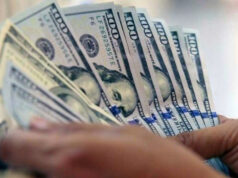THE GENERAL INCREASE in the prices of widely used goods and services eased in February due to slower price adjustments in the heavily-weighted food and non-alcoholic beverages, as well as select non-food commodities, the government reported this morning.
Preliminary results from the Philippine Statistics Authority (PSA) showed February inflation at 2.6%, slower than January’s annual rate of 2.9% and 3.8% in February 2019.
The February reading was slower than the three-percent median estimate in a BusinessWorld poll of 17 economists conducted late last week. It was, however, within the 2.4%-3.2% forecast range given by the Bangko Sentral ng Pilipinas’ (BSP) Department of Economic Research for the month.
Year to date, inflation settled at 2.8%, still within the BSP’s 2%-4% target band and below the revised three-percent forecast for the entire 2020.
Excluding volatile food and energy prices, core inflation slowed to 3.2% from January’s 3.3%. So far, it averaged 3.2% for the year.
“The downtrend in the inflation was mainly brought about by the slower annual increase in the heavily-weighted food and non-alcoholic beverages index at 2.1% during the month [from 2.2% in January],” the PSA said in a statement.
The PSA also noted decelerations in the annual increases in alcoholic beverages (to 18.2% in February from 19.2% in January); housing, water, electricity, gas, and other fuels (1.7% from 2.5%); and transport (1.8% from 3%).
On the other hand, the index of furnishing, household equipment and routine maintenance of the house saw an uptick of 3.5% in February from 3.1% a month ago.
Other indices were steady during the month. These were clothing and footwear (2.7%); health (2.9%); communication (0.4%); recreation and culture (1.5%); education (4.7%); and restaurant and miscellaneous goods and services (2.6%).
The food-alone index also remained steady at 2.1% from the previous month, albeit slower than the 4.2% posted a year ago. — Jobo E. Hernandez



